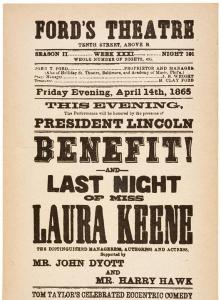John Murdock did not like the PBS documentary on Billy Graham, about which he wrote the following:
Recognizing that Billy Graham lived a life difficult to portray negatively, the film presents Graham’s chief mid-life mistake as keeping Martin Luther King, Jr. at arm’s length while embracing Nixon, before the true light of a worldly tolerance shines on him. It says nothing about Graham establishing Christianity Today to counter the progressive Christian Century, or his role in the founding of conservative seminaries like Fuller and Gordon-Conwell and institutions of global evangelicalism such as the Lausanne Movement.
Murdock wrote this on purpose and in public. The sneering touches — “the true light of a worldly tolerance” — were his own doing. And yet he clearly does not comprehend what he just told us about Billy Graham and — more importantly — what he just told us about John Murdock.
 Murdock is upset that the film focuses so much on one “mid-life mistake” instead of other aspects of Graham’s spiritual and moral leadership, just because that one, single mid-life mistake happened to be Graham’s choosing the Very Wrong side of the largest, most important, and most consequential spiritual and moral question of Graham’s lifetime.
Murdock is upset that the film focuses so much on one “mid-life mistake” instead of other aspects of Graham’s spiritual and moral leadership, just because that one, single mid-life mistake happened to be Graham’s choosing the Very Wrong side of the largest, most important, and most consequential spiritual and moral question of Graham’s lifetime.
Sure, on the one hand, Graham balked and choked and his moral compass failed him spectacularly on the most momentous moral question of his ministry, but on the other hand he also helped to found a bunch of institutions that also failed spectacularly on that same massive moral question, helping to codify and institutionalize that utterly immoral wrongness, timidity and craven cowardice for generations to come.
And John Murdock chose to step forward to ask “What’s so wrong with having been so completely wrong?”
“The problem of the 20th Century is the problem of the color line,” W.E.B. Du Bois wrote in 1903. Murdock disagrees. He thinks the biggest problem of the 20th Century was the argument between the Christian Century magazine and Christianity Today. And since Graham was, in Murdock’s view, on the right side of that latter dispute, he “lived a life difficult to portray negatively.”
I struggle with how to respond to this kind of enthusiastic obtuseness.
Hence the title of this post, which is the name of the play that Abraham Lincoln was watching at Ford’s Theatre on April 14, 1865. That’s always my first thought when I’m confronted with the many, many examples of good, devout white evangelicals treating our tradition’s massive, appalling failure on the greatest moral question of our time as something of trivial importance: “Yes, but other than that, Mrs. Lincoln, how did you enjoy the play?”












